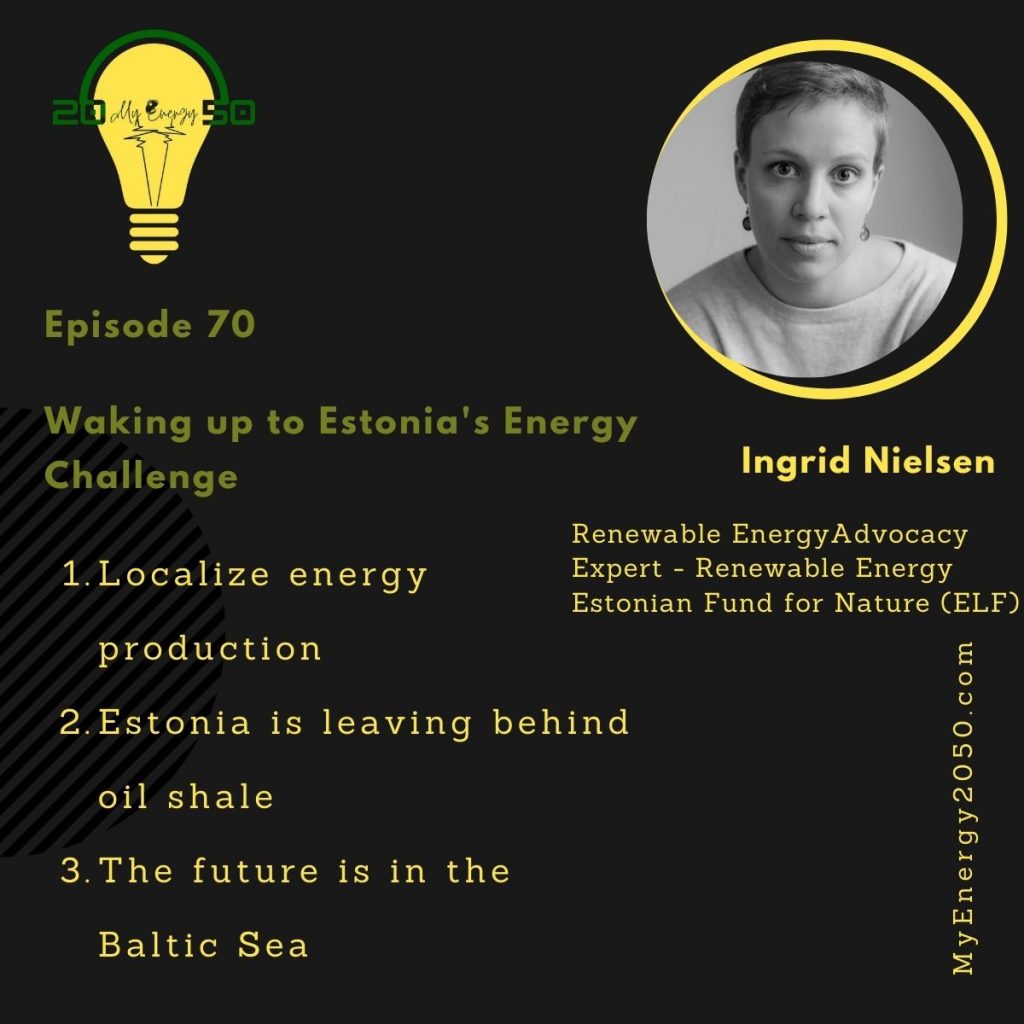This week we speak with Ingrid Nielsen, a Renewable Energy Advocacy Expert for the Estonian Fund for Nature (ELF).
It says about the importance of energy when an organization with a deep biological foundation and a mission to protect nature also addresses the role of renewable energy. This week’s conversation with Ingrid straddles these fields of environmental protection and the deployment of new energy technologies.
There was a reason I traveled to Estonia. And this was to gain a greater understanding about how this Baltic country is shifting away from the heritage of the Soviet Union. Each country as we are exploring in recent episodes of this podcast had different relationships and ties with the Soviet Union. How each of these relationships was navigated was based on a variety of factors, but probably the most important was the domestic resources of the country itself. In the case of Estonia, it was the deposits of oil shale.
As Ingrid explains, oil shale is the poor cousin of coal. Sounds bad doesn’t it? Listen to our discussion of why and how Estonia became complacent on driving a more sustainable energy transition over the past decade – or more.

To understand Estonia’s challenges and transitions in energy, Ingrid points out the importance of political will but also the price of energy. This is emerging as a common theme, the cheapness of energy. Bountiful and cheap energy stalled necessary changes. Now Estonia is attempting to move forward with a pressing need to utilize the sustainable natural resources it possesses.
I probably don’t mention enough all the great people that provide assistance to organizing the interviews and topics. And this week, we can thank one of our former Central European University students, Johanna Maarja Tiik for her assistance with lining up this interview with Ingrid.
A final note, this interview was done for my current role as an Open Society University Network, Senior Fellow at Chatham House, The Royal Institute of International Affairs. The funding was generously provided to produce the podcasts until the end of 2022.
Outline and Transcript
What is Elf? What is an advocacy expert? What has changed through the years?
2:52
Why is journalism such a good fit for you?
11:39
What are the power dynamics that you see in the energy system?
17:05
What is shale oil? What is the environmental damage of that?
25:22
What is the impact on the community moving away from shale oil?
29:36
No government policy yet about what to do with the landscape in these former coal mining regions.
36:35
What should be the objective of national energy policy? Should it be self sufficiency or greater interconnection?
45:22
What’s happening to the energy community?
50:55
What are the advantages and disadvantages of being a member of the European Union?
59:32
Dr. Michael LaBelle is an associate professor at Central European University in the Department of Environmental Sciences. He produces the My Energy 2050 podcast to change how we communicate and improve the energy transition.
